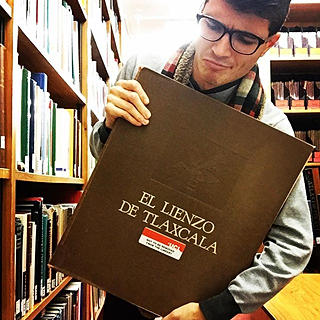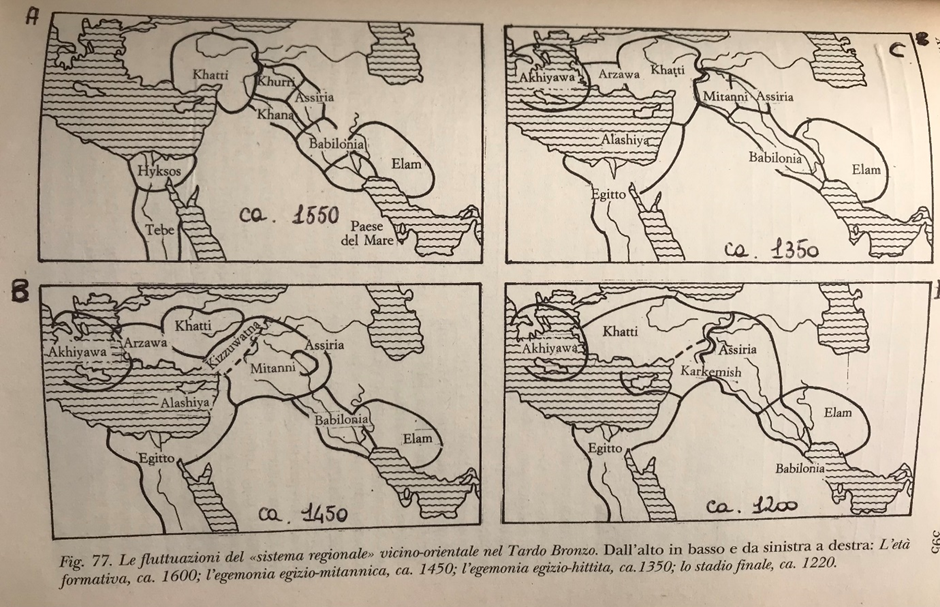Thutmosis's Dream
- Alessio Pimpinelli
- Jul 30, 2022
- 7 min read
Updated: Apr 19, 2023

Historical context for the reader: Thutmosis IV (c. 1401-1391 BCE) became pharaoh of Egypt after the death of his father Amenhotep II. The most famous monument from his time is probably the so called ‘Dream Stela’, an inscribed stone which the young ruler erected between the paws of the Giza Sphinx after clearing the sands which engulfed it. The stela text recalls how the Sphinx – at the time believed to be the representation of the deity Horemakhet (an aspect of the Sun) – visited Thutmosis in a dream whilst he was sleeping under its figure. The Sphinx prophesised that Thutmosis (still a prince at the time) would inherit his father’s kingdom; as a recompense, the young prince cleared the sands away from the old monument and restored it to its former glory once he became pharaoh. Today the majority of scholars believe that the ‘Dream Stela’ is none other than a cleverly written piece of political propaganda by which Thutmosis justified his accession to the throne, especially as he had not been his father’s prime heir. In this ‘tableau’, I have reinterpreted the (probably fictional) meeting of Thutmosis with the almighty Sphinx/Horemakhet.
Interesting fact: Thutmosis’s mummy at the National Museum of Egyptian Civilization in Cairo is probably one of the best preserved royal mummies you can admire. His serene smile is striking; the reddish hair dyed with henna is still much in place and, for the first time, a royal mummy shows his earlobes pierced.
It was always hot during the harvest season of Shemu, but never like that day. The sun was blazingly hot, the horizon was hazy and wobbly. Thutmosis was drenched in sweat. He could not remember anything like that before. Not that he had lived that long anyway – he was just about to achieve two decades’ time on this earth – but still, the only thing he could think about was the incomparable ferocity of the heat.
Suddenly, he decided he could not bear it any longer. “Let’s find some shelter, guys, before we melt down like butter in the oven”, he shouted across to his comrades. “Indeed, Prince, it is best to get some shade before Ra reaches the peak of its power”, commented Sobekhotep. Thutmosis concealed a smile; Sobekhotep just loved speaking in such a flowery manner. Thutmosis couldn’t understand how his friend could do that; on his part, the prince was too impulsive – something he had to carefully work on, given his status. He surely did not want to bring any shame to his father, the current pharaoh Aakheperura Amenhotep II, nor to his brother (also called Amenhotep), destined to become the next ruler.
At one touch of Thutmosis’s reins, the chariot’s horses changed course, following an invisible path through the golden, sandy sea; his party followed suit. In the north, the pyramids of Giza towered over the surrounding barren landscape; a symbol of the pharaohs’ eternity and of Egypt’s strength since time immemorial. Thutmosis headed towards Setepet, the new sanctuary that his father had just dedicated to the local solar deity, Horemakhet. It was situated adjacent to the statue of the old god, a squatting feline with a human head and a nemes crown, staring perpetually at the horizon.
The party left their chariots in the shade of the crumbling ruins of the old temple (probably built in the same time as the god’s statue) and headed for the dimmed interior of Amenhotep II’s sanctuary. In exiting the ruins, the young men were confronted with the soaring figure of Horemakhet, its petrified glare barely visible from the ground. But what struck them all was the fact that the statue had all but been submerged by a tide of glittering sands. While they were riding towards the old temple, they had been able to see only the god’s head; but now, being so close, they could admire what years of sandstorms and human neglect had achieved.
“I thought your father had cleared the place years ago. How is it possible that it is like this again?”. Thutmosis could detect a note of incredulity in Ramose’s voice. “It is probably a combination of natural strength and human neglect – no offence, Prince”, replied Sobekhotep. “None taken. And yet, I agree, the sandstorms must have been pretty brutal here if Horemakhet is in this state again”, commented Thutmosis. Despite its mass being concealed by dunes, no one could deny the strength which nonetheless radiated from the finely cut features.
“It must be at least 20 feet high, and I am talking of the head only!”, shouted Ramose, his eyes shaded by his outstretched arm. “Impressive for sure. Now let’s go, I don’t want to faint - or worse! - in this blasted heat”. Nakht’s harsh and cynical voice suddenly broke the spell. One by one, the young nobles turned their heads towards the portal of Amenhotep II’s sanctuary. “Are you coming?” asked Sobekhotep. Thutmosis had not even realised that his companions had left; he was still hanging onto Horemakhet’s eyes, admiring those finely chiselled shapes worn out by time. “You carry on, I fancy staying here a little longer”. “Alright then, but be careful: Ra is at its peak now. Don’t linger here for too long”. And with that, Sobekhotep left Thutmosis alone with his own thoughts.
For a while Thutmosis was incapable of doing anything but keep staring into those lidless eyes; then, he suddenly felt the urge of reaching the base of the god’s head. The climb was made arduous by the intense heat and by the slippery sands; but eventually, after what seemed an interminable time, he reached the shade and safety of the god’s chin. Here, the prince’s eyelids felt suddenly heavy; he could not just keep his eyes open a minute longer. With his mind hazy, Thutmosis let himself go down on the sand, his back propped up against the smooth rocky surface. Sleep took hold of him almost immediately.
A scarab appeared in front of his eyes. Thutmosis could see its black wings shining like freshly grinded black kohl. Then, the scarab opened its wings, and from between them the solar disc emerged. The unexpected bright light forced the young prince to squint his eyes forcefully; but, a moment later, the light had already dimmed, and streams of orange and slashes of red appeared on the sun disc’s surface, along with a pair of sharp ram horns above it. Thutmosis was still so stunned from the earlier brightness that he had not even noticed that a voice was calling his name. Suddenly, he realised that the alien sound was coming from just above his head. Raising up his chin, he saw the rocky eyes of Horemakhet staring at him directly in his face; but, unlike earlier, Thutmosis could detect a spark in those eyes, a glittering brightness which was not there when he had inspected the god’s face with his friends. The voice became louder and clearer; a strong, ethereal sound which pervaded the whole being of the young prince, leaving him with chicken skin along his arms and his back shivering. “Thutmosis”. “Who are you?”. Thutmosis did not even know whether he had actually spoken out those words or whether he had just imagined them. “I am the beginning and the end”, replied the voice. “I am Khepri, the rising sun; I am Ra, the midday sun; I am Atum, the ram-horned sun whilst it sets. I am Horemakhet, the giver of life, the creator of the world. Now you shall listen to me”. Thutmosis blinked; even if he had not wanted to, he would have had no choice but listening to him anyway – as if he could actually go anywhere! Horemakhet continued: “Soon you shall inherit my kingdom, Thutmosis. You shall wear the white crown of Upper Egypt and the red crown of Lower Egypt on your head. You will sit on the throne of Geb and, from there, you shall rule the Two Lands. You will be the protector of my affairs in the material world. But I shall also need your help: as you can see, the sands of the Sanctuary, upon which I am, have reached me. Turn to me, help me, because I know that you are my son and my protector”.
As he blinked again in incredulity, Thutmosis noticed that the spark in the god’s eyes was not there anymore. Suddenly he found himself staring at the rocky spur which once would have extended into Horemakhet’s false beard. Only then, the young prince realised he was awake again. Had he dreamt it all? Had the god really come to him and spoken to him? Or was this all just a trick of the midday heat? But what had struck him the most was what Horemakhet had said. Ruler of the Two Lands? Son of the god? How could that even be possible? His father was healthy, and so was his brother. That must have all been a trick of his own imagination. He had stayed too long in that damned heat and these were the consequences. Sobekhotep was right – as always, alas; better not to take any chances with these temperatures. Slowly, Thutmosis got to his feet and slid down the sandy dune which he had climbed earlier. He did not know for how long he had been up there. On the threshold of his father’s sanctuary, the young man turned around and glanced once again at those stony eyes, still fixed on the barren horizon. For a moment, he thought he could see a spark of life in them again. He grinned. “If I ever become pharaoh, I promise you shall be set free again from your sandy mantle, dear god. But until then, I am afraid you are bound to your golden cage!”. He laughed; he didn’t even mean what he had just said; it seemed all a game to him. And yet, somewhere within himself, he felt that he might have to carry out that promise someday. Then, he stepped into the cool air of temple.
.png)




Comments